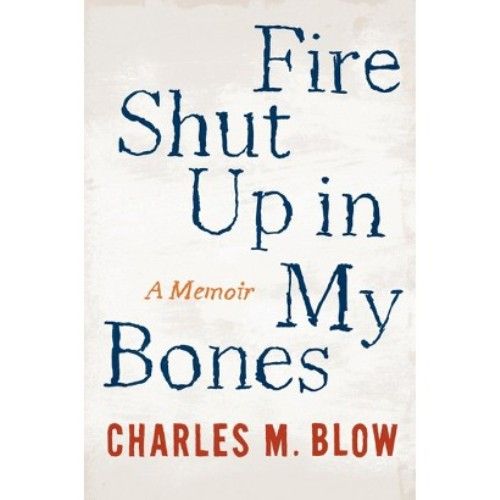Sex
Charles Blow: "Up From Pain," Sex Abuse, and Bisexuality
This memoir of childhood torment and sex abuse reminds us sex is not so simple.
Posted September 23, 2014


I assume most people who follow Charles M. Blow's column in The New York Times were as startled as I to learn that he once nearly murdered his cousin.
But there it was in this Sunday's Times, in a remarkably frank autobiographical piece: the older cousin who'd sexually molested him, the time, years later, when he came close to shooting his abuser in a moment of blind rage, and Blow's lingering uncertainty over how to reconcile his clear attraction to women with the lingering presence of certain erotic feelings regarding men.
Blow's book-length memoir, Fire Shut Up in My Bones, was released today. Being a sex therapist, I'd pre-ordered it on Kindle, eager to learn all I could from a writer I admire, about a subject that seems to have come of age in the last year or two: male bisexuality.
I hurried to my office early this morning and went immediately to my computer to read the just-released book online. Having read the New York Times piece, I wondered what new perspectives I might gain from this memoir of a "mostly straight" man who wrestles with some degree of same-sex attraction.
But the book grabbed me by the shoulders and wouldn't let me go. As I finished it minutes before the arrival of my first patient of the morning, I realized I'd accomplished the opposite of what I'd intended.
I'd hoped to gain some new perspectives on bisexuality. Instead I entered a strange world of emotional violence, shootings and near-shootings, deaths and funerals, and physical and emotional brutality all experienced through the eyes of a boy and the man he would become. Finishing the book, I realized it had mainly served to remind me of how complicated sexual feelings are, how tightly they are bound up with other struggles, and how humble we must be in trying to theorize about them.
As a sex therapist reading Blow's New York Times article, I'd suspected Blow was what's technically these days called "mostly straight." Many men are mostly straight, but with a bit of same-sex arousabiltiy thrown into the mix. As I discussed in "Sex Therapy and the New Bisexuality," generally "mostly straight" men keep quiet about the fact that they can also get somewhat turned on by other men.
Reading Fire Shut Up in My Bones, it seemed that Blow's homosexuality was a rather minor current in an otherwise strongly heterosexual erotic life. But since the night he was sexually abused by his older cousin, the possibility of same-sex attraction had haunted him:
"Surely I had done something awful to make Chester do what he had done. I just couldn't figure out what it was. Or maybe there was another reason, one I thought worse. Maybe I had been curious and willing. Maybe I had wanted him to do what he had done, and that's why I hadn't screamed. That possibility was even more frightening than the first."
One of the strangest aspects of sex abuse is this transformation from having been an unwilling victim to suspecting oneself of having been an accomplice. In Blow's case, as for many if not most other men who have been abused, this developed into a full-blown obsession: a painful idea that draws its power not from any rational argument but simply from its ability to shock.
Blow's obsession with the idea of not being fully heterosexual (despite ample evidence to the contrary) gained further strength by being from the start wrapped up with his frustrated longing for male attention and affection. After the abuse, all such yearnings seemed dangerous.
Fire Shut Up in My Bones doesn't dwell much on the question that men in my office who've been sexually molested as boys most frequently ask: "Did being abused make me bisexual?" Blow seems to think that in his case it didn't. In the Times article, he writes, "Abusers don’t necessarily make children different, but rather, they are diabolically gifted at detecting difference, often before the child can see it in him or herself."
Having to hide his bisexuality certainly didn't help. As Blow writes, "Concealment makes the soul a swamp." Secrecy and shame go together. When a man has not one but two sexual secrets inside, it's not surprising that they'd team up to torment him.
I'm glad Blow had the courage to come out with his two secrets. I hope the book encourages other men to break their silence as well.
In the meantime, I hope my fellow sex therapists and researchers read Fire Shut Up in My Bones. To read it is to realize again, if one ever forgot, that sexuality and the soul are inextricably bound together.
© Stephen Snyder, MD 2014 www.sexualityresource.com
See related articles:
On Male Bisexuality: The Elle Interview
Sex Therapy and the New York Times: The New Bisexuality




